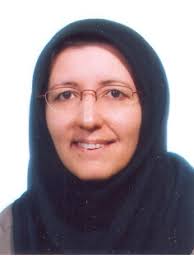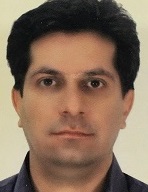
Title: Machine Learning Computer Design Concepts
Abstract: In this talk, an overview of current trends in machine learning computer design concepts will be discussed with an emphasize on challenges and opportunities facing this field. Some of the traditional computer design ideas that are now being applied to machine learning will be presented. Deep learning has emerged as one of the most promising research fields in artificial intelligence. The significant advancements that deep learning methods have brought about for large scale image classification tasks have generated a surge of excitement in applying the techniques to other problems in computer vision and more broadly into other disciplines of computer science. The phenomenal growth of machine learning is positioned to impact our lives in a way that we have not been able to fully imagine in the near future. This talk will also cover some of the key areas that AI has the potential to revolutionize.
Bio: Nader Bagherzadeh is a professor of computer engineering in the department of electrical engineering and computer science at the University of California, Irvine, where he served as a chair from 1998 to 2003. Dr. Bagherzadeh has been involved in research and development in the areas of computer architecture, reconfigurable computing, VLSI chip design, Network-on-Chip, 3D chips, machine learning accelerators, computer graphics, memory, and embedded systems, since he received a Ph.D. degree from the University of Texas at Austin in 1987. He is a Fellow of the IEEE.
Webpage: https://engineering.uci.edu/users/nader-bagherzadeh

Title: Two Decades of Analysing Real-time Distributed Systems
Abstract: In this talk, I will present my reflections on the development of Rebeca modeling language and its analysis toolset for real-time distributed systems. Rebeca was designed more than 20 years ago as an imperative actor-based language with the goal of providing an easy to use language for modelling concurrent and distributed systems, with formal verification support. It was extended a few years later to support modelling real-time network and computational delays, periodic events, and required deadlines. I will reflect how we used this language and its toolset for safety assurance and performance evaluation of different systems, such as Network on Chip architectures, sensor network applications, and network protocols. I will also present the efficient techniques we proposed for state space reduction in model checking where we exploit the isolation of method execution in the model. I will touch upon issues such as the need for yet another modelling language, semantic gap, the connection between modelling abstractions and scalability of the analysis, dealing with cyber-physical systems, industrial adoption of formal methods, and trust in autonomous cars.
Bio: Marjan Sirjani is a Professor and chair of Software Engineering at Mälardalen University, and the leader of Cyber-Physical Systems Analysis research group. Her main research interest is applying formal methods in Software Engineering. She works on modeling and verification of concurrent, distributed, timed, and self-adaptive systems. Marjan and her research group are pioneers in building model checking tools, compositional verification theories, and state-space reduction techniques for actor-based models. She has been working on analyzing actors since 2001 using the modeling language Rebeca (http://www.rebeca-lang.org). Her research is now focused on safety and security assurance and performance evaluation of cyber-physical and autonomous systems. Marjan has been the PC member and PC chair of several international conferences including SEFM, iFM, Coordination, FM, FMICS, SAC, FSEN, and DATE. She is an editor of the journal of Science of Computer Programming.
Webpage: https://www.ru.is/faculty/marjan/

Title: Revolution of AI in telecom Networks
Abstract: Artificial Intelligence (AI) is a game changer for next generation Telecom networks as many other areas. Acquiring more customers, having more services while enhancing the customer experience and reducing the cost are the main goals of any operator. AI can help the operator to achieve these goals via automation. Fully automated future networks can set up services in short times while considering the network conditions and user experience. Closed loop operation of the network can reduce the OPEX and improve the efficiency of resource allocation and assignments where human faults are the main source of deficiency.
Bio: Vahid Shah-Mansouri received B.Sc., M.Sc, and PhD from University of Tehran, Sharif University of Technology and University of British Columbia respectively. He joined School of ECE, college of Engineering in University of Tehran in 2013. His expertise falls in the area of computer and communication networking. From April 2020 to May 2021, he served as deputy director of networks in MCI R&D center. Since My 2021, he is the director of MCI R&D center.
Webpage: https://ece.ut.ac.ir/~vmansouri